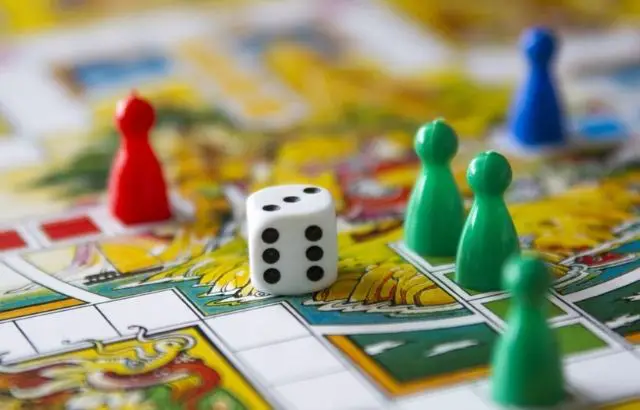Do you know how do board games work?
Board games are a great way to teach young children language skills, communication, and basic math skills. Over the past decade, board game design ideas have gained more popularity in the sports industry.
Captions exceptions; Content via Hasbro or Upper Deck (Horrid margin, the distributor will not list MSRP, so retailers believe it is 40-50% and ends up) Internet:
Although board games contribute to video games, they are played differently and frequently use diverse game mechanics.
Though the board gaming market is projected to be lesser than video games, Catan has also seen significant growth since the late 1990s.
Designing board games poses significant challenges than creating video games, but these skills can be universally applied to make your gaming better.
But what are board games, and how can we define them?
Table of Contents
How do Board Games Work?
Board games have a central board that can detect a player’s position with other players. Board games always have a token or avatar that represents the player. For example, the hat token in monopoly, and the token representing the player’s position in snakes and ladders.
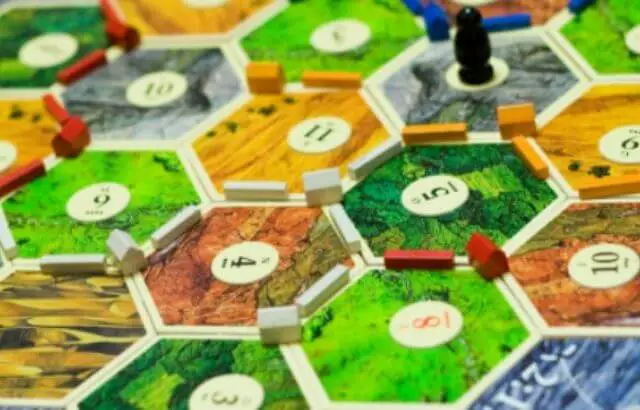
Main types of Board Games
As a universal rule, board games are divided into three categories:
- War Games
- Race Games, and
- Alignment Games
In War games, the main objective is to defeat or destroy your opponent. Examples include Chess, Checkers, and Go. Have a look at this guide for the best war board games.
In a Race game, players try to reach a goal or a given target. Snakes and ladders, Pictionary, Monopoly, and Scrabble, are all race games.
Alignment games are board games in which players must place their pieces on a game board to reach a specific configuration.
Board games have specific Rules. That is, board games have a specific set of rules, for example:
- Reducing the number of players in the game
- Limiting the number of spaces on the board
- Limiting the number of possible moves, and
- It limits what can be done in one area.
Many board games use dice and cards that contain information that affects the outcome of the game. In a board game, the dice are usually related to the token’s motion on the board.
Virtually all board games are turn-based. Children’s games, especially for young children, are based on luck, on the dice rolling. Games for older children have decisions in the games, which affect the outcome of the games, for instance, using a combination of letters to form a particular word in a scrabble.
Board games require two or more players, as opposed to puzzles or video games that are usually solitary activities, although there is an option for others to join the game. An important aspect of board games is that they are social because they need to communicate meaningfully with other players.
It is crystal clear that board games have a specific set of criteria that sets them apart from other types of games. The classic board game’s main component is that it is fun, and it teaches critical skills early on.
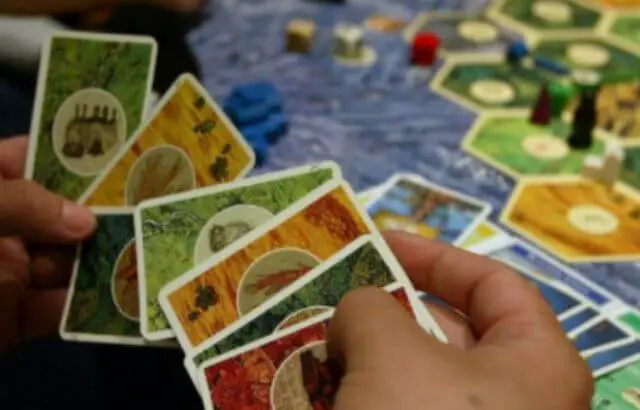
Best Use of Board Games
With these facts in mind, let’s take a look at some of the most popular uses for board games:
- A strategy-building tool
- A Party Entertainment Enabler
- A tool for easy teaching of concepts
- A refresher of concepts and to give relief to those who work during their break time
- Learning the basis for gaining skills in problem-solving
- Basic Practice content to gain fluency in basic reading, writing, math, and other skills
- Gamification of concepts connected with all trends like chemistry, biology, history, engineering, etc.
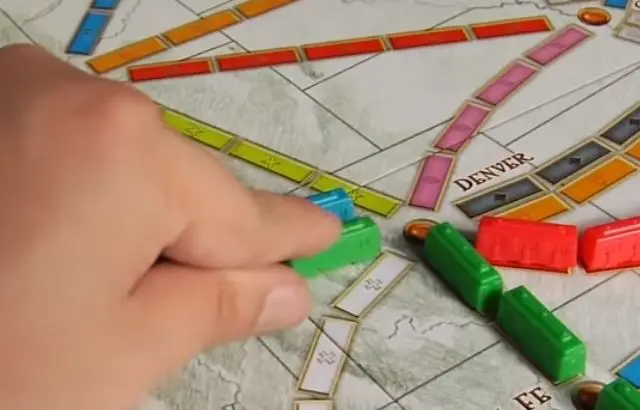
Where to Draw a line when Playing Board Games?
We want to draw attention to some of the principles that can be used against board games. So, learn about this now to make sure you rule the board game and don’t let it go the other way round.
Disadvantages of Board Games
Some of the disadvantages of board games that you must know or experience while playing:
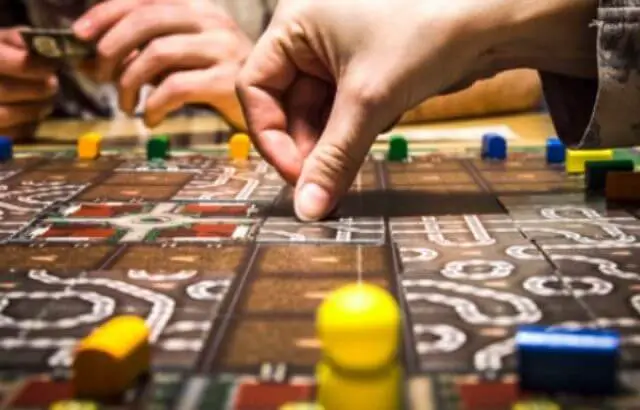
Board games can be addictive and messy.
After the game is over, you can better yourself or think about winning if the game is lost. Also, you feel drawn to play again and again to improve scores.
Board games are very time-consuming.
Many parts of the game are very long and last for hours. If you do not play with understanding, you will be immersed in it all day without understanding the time you have spent.
Board games can be stressful at times.
Especially when you are too light of losing, you get stressed out while playing board games. You have to get people to take care of your game and not feel like your game will be able to finish one of the “14% projects. I am in a unique position not to receive a single pledge received.
The feeling can create an inappropriate feeling of competition when the emotion is out of control.
Board games become fun only when you play this with a constructive frame of mind. Using board games to bring ego into the gameplay and prove supremacy can defeat the idea behind playing these games. Such an attitude can also lead to quarrels, leading to differences in the meeting/party/class.
Board managed surprisingly high 55% of board games because they hit their target, which seems incredibly optimistic for the entrepreneurial idealist.
Board games are a bit expensive compared to other options.
Some board games are costly and do not deliver value compared to the size of the carrying value. Sales by the latest PC and console blockbusters are still trending, but board game purchases have seen an annual growth of 25% and 40% over the past four years.
Sometimes, motivate for unusual behavior.
Do you ever feel happy when your friend has to ‘die’ in any situation in real life? But, in a board game, you may find yourself celebrating the death of a friend who plays your opponent in the game. Also, losing people and feeling good about them is not a sign of a healthy mindset. Thus, the gameplay needs to be controlled, or people have to guide you so that negative emotions do not come to mind.
You will only get about 3-5% royalty, which is not a lot of money, but it also means that your game will be in good hands and probably observe the light of daytime becoming a reality.
Benefits of Playing Board Games
Playing board games bring people nearer, empowers relationships, and can assist you in meeting new people.
Many people can play board games. Collaboration is the foundation of board game playing. Players must connect through teamwork. This is a perfect way to spend time in good company and strengthen bonds with other human beings.
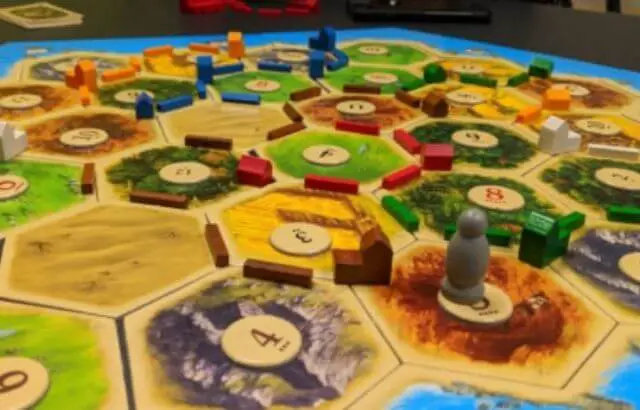
Playing board games increases brain function.
Playing is an exercise in your brain. It arouses areas of the brain that are in charge of memory development and intricate thought processes in all ages. Participating in the game helps to practice the necessary cognitive skills, such as decision making, a high level of strategic thinking, and problem-solving.
It teaches your patience and how to set goals.
Playing board games to reduce stress is excellent and produces laughter. The side effect of playing board games is laughter. It is an essential component for a fun learning experience and growing creativity. Also, generally laughing and having a good time helps reduce stress.
Playing board games give excitement.
Playing board games arouse the discharge of endorphins, which have the power to improve the functions of the conscious and unconscious mind, making the person feel happy, compassionate, and ultimately reconciled.
For instance: Peradventure 80percent of the game has been played, the outstanding players will receive 80percent of the ELO they would have won.
Playing board games boosts creativity and confidence.
Playing board games is the perfect opportunity to connect and open; it also helps display the constructive side of personality in a non-intrusive way, which can be beneficial for quiet individuals. Board games are an exciting tool for shy kids and timid adults. They develop a strong sense of personality and creativity. This leads to more self-esteem and a feeling of being included and noticed.
Another estimate from 2014 kept the board market growth “between 25% and 40% annually” since 2010 and described the current period as a “golden age for board games.”
You can play board games anytime, anywhere.
No restrictions, no pressure! It is one of the great things to know that board games can be played anywhere and anytime. The possibilities are endless! You may feel excited, adventurous, courageous, or, perhaps, lonely and sad, but there is always the opportunity to play and connect with like-minded people. In ancient Ireland, the game of Fidchell or Ficheall is said to be at least 144 ADS, although this is probably an anachronism.
How do Board Games Work: Frequently Asked Questions
What makes a board game successful?
Here are the top 5 features of what makes a successful board game.
- Everyone can play the game
- Easy to understand and remember
- Includes choices mixed with luck
- Fun pieces to play
- More and more can be played
How do you get into board games?
The best trick is to buy it at the nearest store, especially if you are not in a big city. After buying it, now you can ask your friends if they are interested in playing, just like you would ask them to hang out. Having a few people in your home, in the beginning, is an excellent way to get into board games.
What is included in board games?
Classic board games
- Clue.
- Candy Land
- Monopoly
- Scrabble
- Battleship
- Risk
- Stratego
- Axis & Allies
- Chess
- Backgammon
- Checkers
- Chinese Checkers
- Blokus
- Agricola
- Connect Four
- Twisters
- Operation
- Don’t break the ice.
- Axis & Allies.
- Chess
- Backgammon
- Checkers
- Chinese Checkers
- Blokus
- Agricola
- Connect Four
- Twisters
- Operation
- Don’t break the ice.
Conclusion
If we weigh the pros and cons of board games, the pros certainly outweigh the cons. With the right guidance, following the game’s rules, and a better approach, users of board games can maximize these games’ benefits without allowing them to influence their mindset further.

Veronica is a Green Bay-based freelance writer and editor with extensive experience with board games. When not busy scribbling her thoughts, you might find her in her garden, hiking out in the woods, or exploring new food joints.
Veronica is a die-hard board game and chess hobbyist by night. She likes to try out new games and is always on the lookout to recruit new players for her game night (so beware!). When not playing board games or throwing darts, she is usually busy painting miniatures (or doing other nerdy stuff).
She is the CEO & Content Writer of Indoor Games Zone. She shares her expertise from years of playing chess, board games, and darts.

![Stiga XTR Pro Review | 1,559+ Global Ratings (In-Depth Guide) [year] Stiga XTR Pro Review](https://indoorgameszone.com/wp-content/uploads/2021/08/Stiga-XTR-Pro-Review-218x150.jpg)




